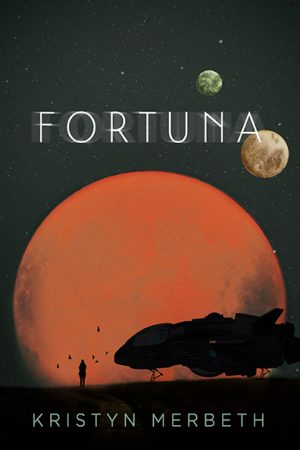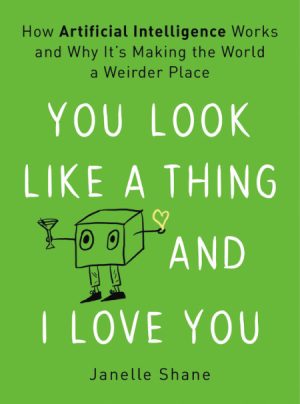
The dog days of summer are (mostly) over now, and soon a crisp wave only recognizable as "fall" will enter the air. While you may not be taking as many vacations over the next few months as you did during summer, you might still be able to find extra reading time during your commute, lunch breaks, and weekends.
There's no shortage of new releases to get hyped about (check out our most-anticipated reads for the second half of 2019 to see even more), but below are some books coming out over the next few months that may pique your interest. All of these books have come across my desk recently, and I think many Ars readers will enjoy family drama-filled space operas, quirky AI one-liners, and intricate details about the biology of platypuses and other odd creatures just as much as I do. Happy reading!
Note: Ars Technica may earn compensation for sales from links on this post through affiliate programs.
Consider the Platypus: Evolution Through Biology’s Most Baffling Beasts by Maggie Ryan Sandford

Science buffs and animal lovers will gravitate to Consider the Platypus, writer and researcher Maggie Ryan Sandford's debut with , for its detailed and often hilarious exploration of evolution through animals. Darwin's theory of evolution shaped the views of everyone who came after him, and it can provide explanations to how some creatures have ended up so curious.
The book does this by "profiling" over 50 animals, and Sandford describes the most important quirks and anomalies of each that likely came from evolutionary adaptation. If you're intrigued by DNA-altering octopuses, radiation-withstanding tardigrades, and venomous platypuses, then you should pick up Consider the Platypus (While we love e-books, we recommend picking up a physical copy of this one so you can experience the charming artwork by Rodica Prato and Sandford's clever annotations in all their glory.)

Consider the Platypus [Available now]
The Ten Thousand Doors of January by Alix E. Harrow

Readers who love books about books will be delighted by The Ten Thousand Doors of January. A young girl named January Scaller stumbles upon a door in the mansion she calls home in the early 1900s. Her guardian, the wealthy William Locke, refuses to believe her story and punishes her instead. So January goes on with her life and comes close to forgetting about the door she found as a child.
But then she discovers a book that seems to hold secrets about other worlds, many of which lie behind doors similar to the one she came across years earlier. What follows is a harrowing story of a girl finding herself while experiencing worlds she never knew existed with friends she never knew she had, including a friendly dog hired by her mysterious father to protect her. Fans of Seanan McGuire's Every Heart a Doorway novella series will find another favorite in The Ten Thousand Doors of January, and anyone who reads for pure escapism will find this novel's many worlds to get lost in refreshing.

The Ten Thousand Doors of January [Available September 10]
Ghoster by Jason Arnopp

Kate Collins thought life with her boyfriend Scott was moving to the next level as she readied herself to move in with him—but upon arriving at his Brighton apartment, she finds Scott and all but one of his worldly possessions gone. Only his mobile phone remains. Like so many young adults living in our constantly-connected world, Kate goes digging for answers in Scott's phone and his social media accounts.
That's when things really start to fall apart.
In an often funny and always unnerving horror story, Ghoster explores how frightening technology and social media can be, especially when our backs are up against a wall. Not only does Kate start receiving strange texts she cannot explain, she's pretty sure Scott's apartment—her would-be home—is haunted. Even so, she refuses to leave until she finds out what happened to him, but forces beyond her control are making her regret her decision. Like Arnopp's previous novel, The Last Days of Jack Sparks, Ghoster relies heavily on modern technology, and many of its references will swing toward the younger crowd. Nevertheless, it's worth checking out if you like horror stories that have a strong technology element to them.

Ghoster [Available October 22]
Fortuna by Kristyn Merbeth

The first book in Kristyn Merbeth's space-opera trilogy, Fortuna takes readers inside the life of Scorpia Kaiser, the pilot of the Fortuna spacecraft and the family screwup. Her brother, Corvus, has always been the favorite—that is, until he left their family to go fight in an unnecessary war. Since then, Scorpia has inherited the Fortuna—it's her family's smuggling ship, her safe space, and somewhat unfortunately, the home she shares with the rest of her family, including her hard-to-please mother.
Scorpia's life becomes infinitely more complicated when Corvus returns home from the war. That throws a big wrench into Scorpia's plans to take over the family business, and Corvus isn't going down without a fight. However, when the true nature of their mother's most recent business collaboration is revealed, the siblings are forced to work together to prevent potentially thousands of human deaths. Fortuna has all the adventure, action, and intrigue you'd expect from a space opera, along with an extra dose of familial complexity.

Fortuna [Available November 5]
You Look Like a Thing and I Love You: How Artificial Intelligence Works and Why It’s Making the World a Weirder Place by Janelle Shane

We hear it all the time working in tech, and regular folks are hearing it, too—"AI is everywhere." While that's true, there are plenty of misconceptions about what AI is and how it actually works. Engineer, research scientist, and creator of the fascinating blog AI Weirdness, Janelle Shane dispels some of the myths about AI and attempts to make it easier to understand for laymen in You Look Like a Thing and I Love You (If that sounds like the uncanny perfection of an AI-generated one-liner to you, you'd be right.)
What better way to explain AI than through examples of what it can and cannot do? Shane is an expert at this and fills the book with hilarious AI experiments as well as a bunch of complementary, charming cartoons. Her writing style is also so approachable that anybody, not just the engineer-minded or the tech-savvy, can understand the often abstract concepts she details. It can be daunting to think of what society often labels the impending AI takeover, but it's not that cut and dry—and Shane's book explains why that is by showing readers what AI usually gets right and what it gets incredibly wrong.

reader comments
99